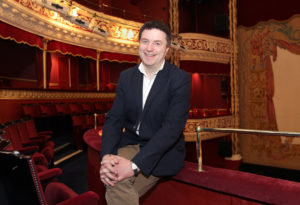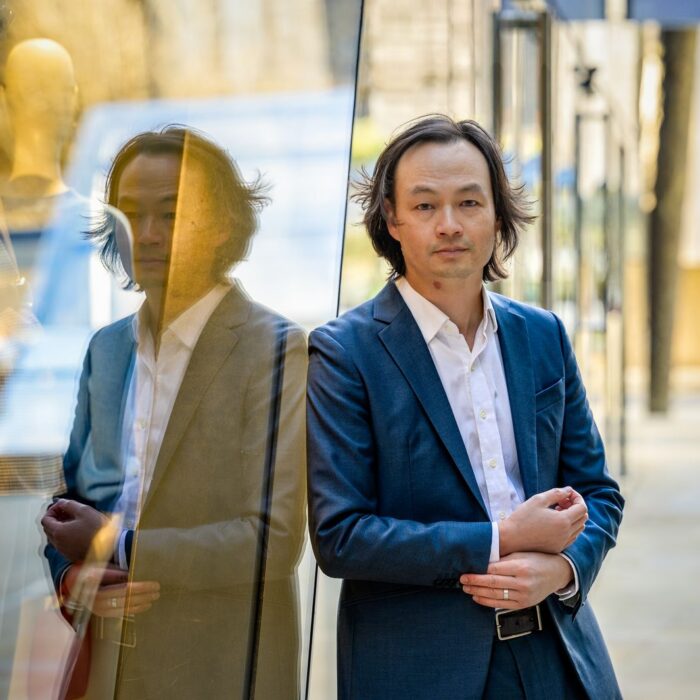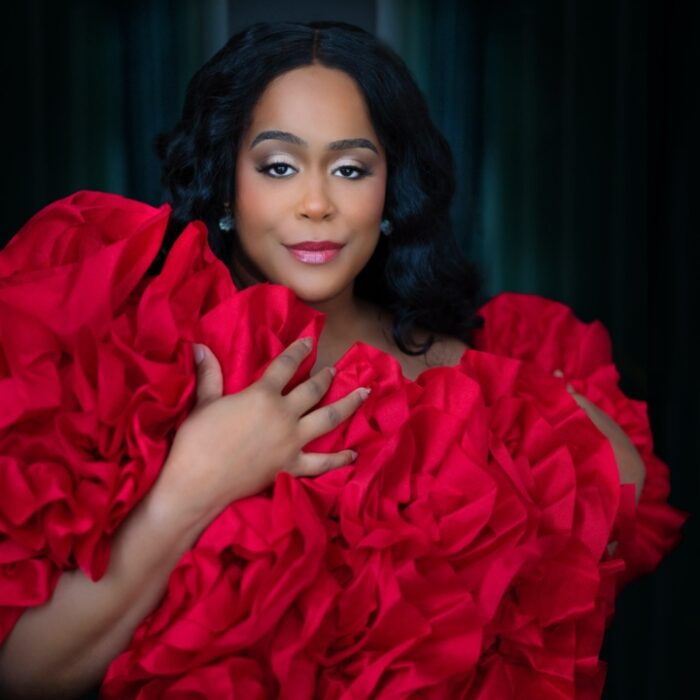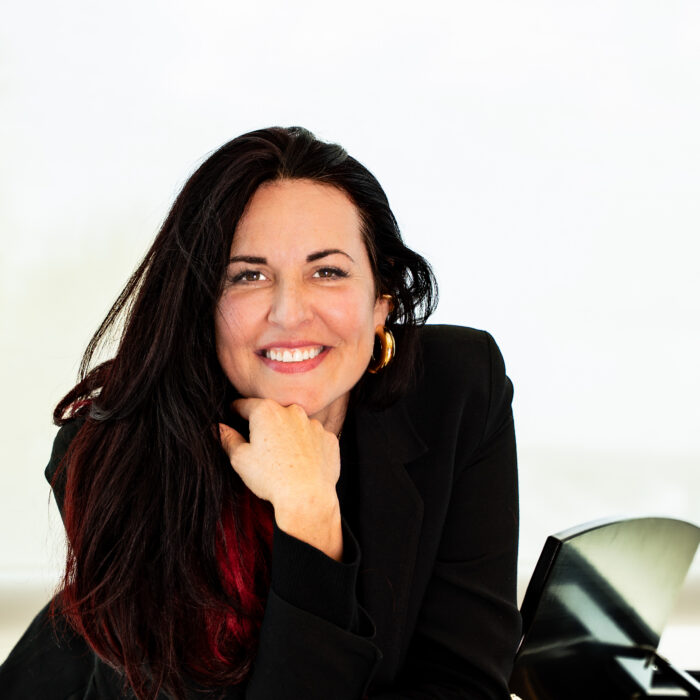
Q & A: Fergus Sheil on the Irish National Opera, Reinvention & the 2021-22 Season
By Francisco SalazarFounded in 2018, the Irish National Opera has put itself on the map for its innovation, operatic productions, and world premieres. During the pandemic, the company was forced to halt live performances, only two years into its work.
However, due to its recent founding, the organization was able to pivot to virtual performances with ease, creating such works as “20 Shots of Opera” among other virtual recitals and performances.
And now, the 2021-22 season is giving the company a chance to blend the virtual with a return to live performance. The result is the most ambitious experiment in the organization’s brief history.
OperaWire was able to speak with Artistic Director Fergus Sheil about the 2021-22 season and recovering from the pandemic.
OperaWire: The Irish National Opera reinvented itself during the 2020-21 season. Tell me about that and what that process was like?
Fergus Sheil: One of our advantages is that we are a young company. We were founded in 2018 and we have flexibility on our side that a more established company doesn’t and we are funded by the Irish Arts Council. Most of the money that government gives us goes to opera productions. We don’t have a huge overhead and we don’t have our own, theater or an orchestra or chorus under contract. We assemble teams and we do some very small productions and some very large productions. We put together teams for each production that we do.
So when the pandemic hit, it was easy for us to flip into another way of working because we didn’t have overheads or ongoing commitments. That’s been really great because what I try to do is when we had to cancel, we kept the ingredients of the project in terms of the cast and creative team and changed what we were doing. For example, we had planned to do Rossini’s “Guillaume Tell” and it was a huge undertaking.
I was so excited and we had assembled the cast, chorus, and orchestra and obviously, we could not do something of that scale so we kept the theater we had booked and we kept many of the cast and orchestra and we came up with another project which was “20 shots of opera.” Essentially the money was used for this and we commissioned 20 different composers to do work for us. It is very different from “William Tell” but it has the scale and it allowed us to engage with a lot of different people and in this case, we were able to engage with small parts and we could work with lots of different small groups of people. So we had two rehearsal spaces going at the same time. Over a period of six weeks, we built up these 20 short operas.
We also did an online mini-series and we did online concerts and recital performances. We also did CDs and explored as many areas as possible. We were able to switch over and it’s actually been interesting and it has actually challenged us and I hope it will be part of our future as well.
OW: The 2021-22 season will be a blend of live performances and streamed performances. When did you decide that you wanted it to be that way and what were some of the challenges in programming this season?
FS: When you look at the year ahead, we are still in the pandemic and we don’t exactly know what we’ll be able to do but we want to get back to live performances. The “Elektra” we just performed was site-specific and outdoors and that has been good. I don’t know if we would have been able to do that production indoors.
We had a production of “Least Like No Other” and it surrounds the story of Rosemary Kennedy from the Kennedy Family. We planned it for a small audience and we prerecorded the orchestra and we presented it several times a day. We also put it through 16 track surround sound so that it would be a richer experience. So we have taken the challenges of this pandemic and turned them into something more interesting than we have done. This opera we performed previously but only for five performances and we wanted to show it more and we came up with this surround-sound approach and it put the audience in the middle of it. There are only four performers and that is doable in the time period that we are in.
Our next huge production is “Fidelio” in November and we are trying to keep our options open. It would be great to do it with full orchestra and chorus but if restrictions are still in place we could do it with a smaller and reduced orchestration to a smaller audience. So we have our scenarios A, B, and C and working with those budgets. So there is a lot of thinking to do.
OW: The repertoire is very varied and interesting. It goes from the classics to more modern works. Tell me about the programming process and what is the most important thing when thinking about the season?
FS: That is a very challenging question because we obviously want to do the core repertoire and they are at the heart of what we do. All those great operas that the audiences love and sustain the audience, we want to perform them here in Ireland. And Ireland has an operatic tradition but there are many blind spots as I mentioned. “William Tell” has not been done for 140 years and we just did the stage premiere of “Elektra” in Ireland. So there are a lot of gaps like that that don’t exist in other countries. I was considering things like “Pelléas et Mélisande” which has not been done for 60 years and “Rosenkavalier,” which has not been done for 40 years. We also want to try to do some Wagner and for example, we have not done a Ring Cycle in Ireland since 1913. And I think it’s exciting that we can do these things and have an outlet for them. These things are huge gaps and we are doing four large-scale operas a year and over a period of time, we will get to address the repertoire.
We are also looking to do one baroque opera a year, which is smaller and can be done on a smaller scale and theater. So far we have done “Griselda,” “Orfeo” and we will be doing “Bajazet,” which will be going to London as well. And that will be the first Vivaldi opera ever performed in Covent Garden. We have a great partnership with the Irish Baroque Orchestra.
I am also interested in new work because one of the things that I think about in Ireland is that if you could go to a dance show, people are interested in contemporary theater. So people are interested in what Irish playwrights are doing and writing. And I wanted to foster that sense of excitement. I always ask myself what is the next opera from certain composers. So we have to set ourselves the task of producing at least one significant large-scale new work per year as well as doing other projects like a youth opera project and a community opera project. I am really excited about striking the balance. I also know that our audience does not always cross over because people who see “Madama Butterfly” won’t see some modern work but over time people will try something outside their comfort zone.
OW: Tell me about casting the works and how you mix the international stars with the rising and more local stars?
FS: When we choose an opera, I would often look at a particular Irish singer I’m interested in for a role. Our Elektra was staged for Giselle Allen. If she would have said no, most likely we would have not done it. We might have chosen a different piece. So the programming is connected to the artist. And then of course an opera does not always revolve around one singer so that is where we can find international guests. I spend a long time looking for the best casts and I go to hear as many singers as possible which was hard this past year. And people like coming to Ireland and some singers come and sing because they have always wanted to come to Ireland.
OW: You are doing a co-production with the Royal Opera House of “Bajazet.” Is it the first time you are co-producing with the Royal Opera House and are you planning on doing more co-productions with other major houses?
FS: Yes. We are collaborating with the Royal Opera House on two productions and that has been a really nice partnership. We also have a “Rosenkavalier” with Garsington Opera and we have also collaborated with Seattle and Philadelphia. There are more coming up and we are very open to it. We have our eyes open and the idea for co-productions is that it allows us to take on some of the more ambitious areas of the repertoire and work with directors and designers who we couldn’t work with on our own due to budgets. But in the context of a co-production, we can make it work and do something really special. I don’t look at co-production as a cost-saving device but more of a way of filling an artistic vision.
OW: The company has grown in such a big way in three and a half years. Why do you think that it’s been able to garner such success in such a small amount of time?
FS: Personally, I think for a long time in Ireland, opera was not resourced at a level that it could have been and I think that there are a lot of people hungry to demonstrate the capacity of talent and the ambition and determination in this country to make something big. And I know that that is shared by other artists like singers and conductors who are ready to do something in Ireland. And these are singers with huge international careers. There is a real hunger for all of us in the company to drive it and demonstrate we can do things and not take them for granted. We appreciate the opportunity we have been given. We have performed in 26 venues in Ireland and Ireland is such a small country and that is a milestone. That we have so many communities exposed to opera already is important and it is a great way to expand our audience. It’s also rare to set up a National Opera company and we are conscious of that opportunity we have been given and we want to make the best of it.
OW: What are you looking forward to this season?
FS: The one thing I am looking forward to is live performances in the theater. I just enjoy the energy that is in the room and that is one thing I am looking forward to. We are also doing “Maria Stuarda” and that is a rare opera in Ireland. It is a genius and a phenomenal opera and we have two of my favorite singers, Anna Devin and Tara Erraught singing the two queens. I know that this is going to be exquisitely sung. I am conducting it and I can’t wait to do it.


